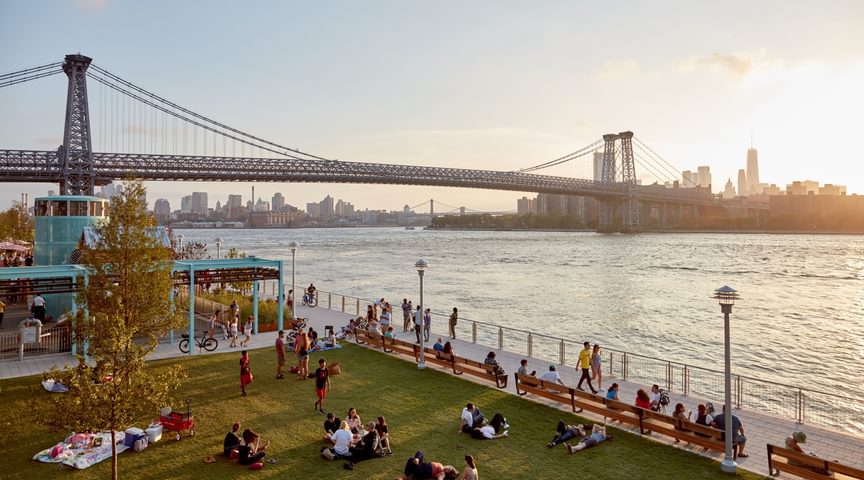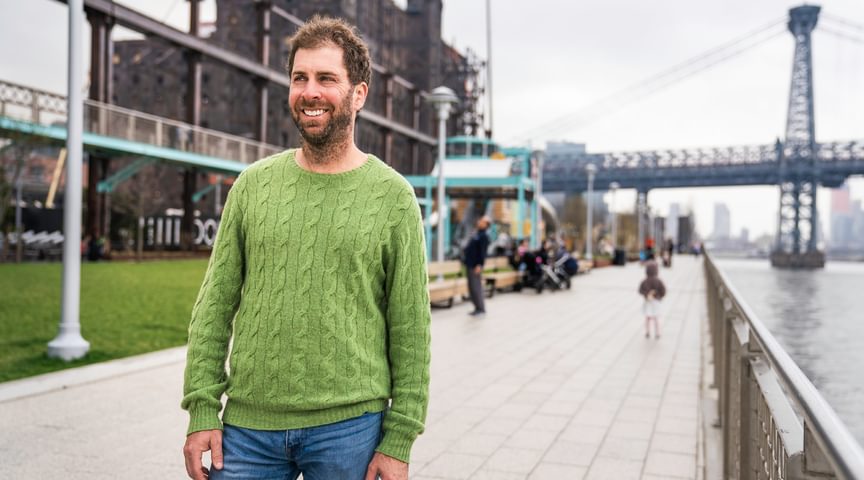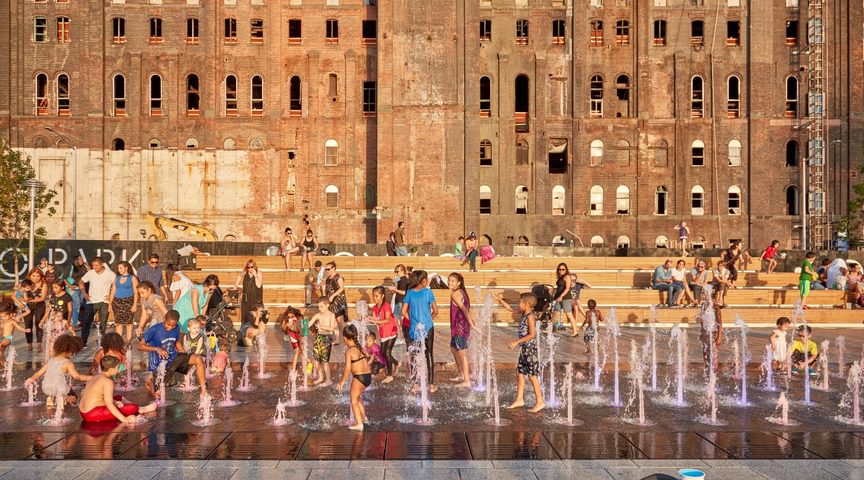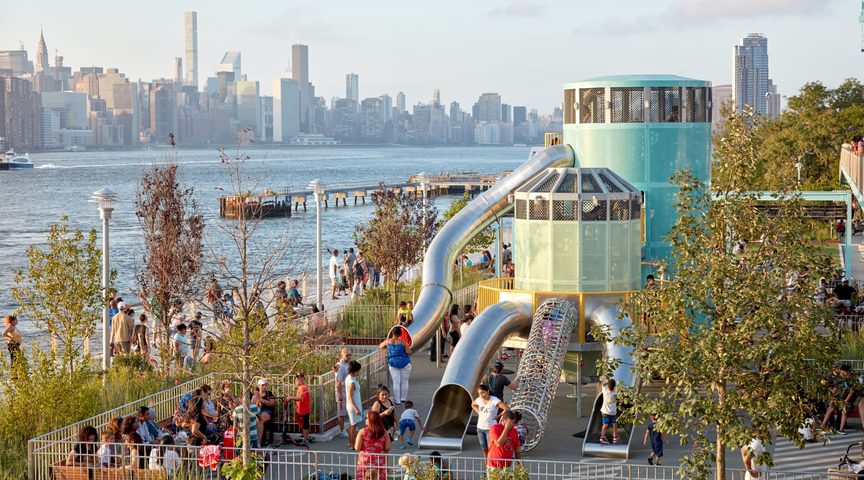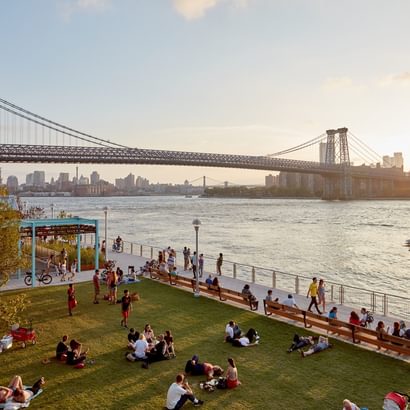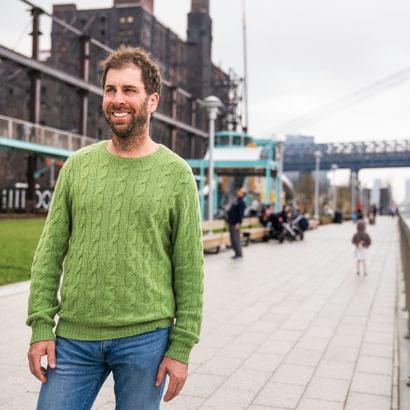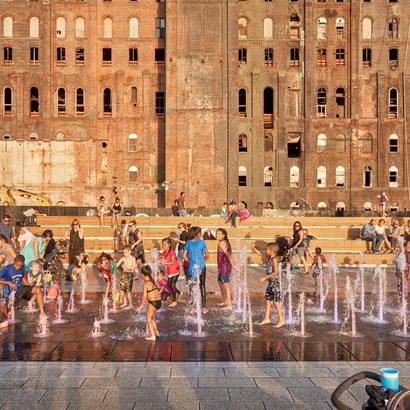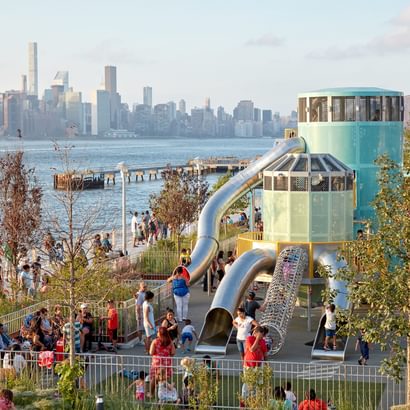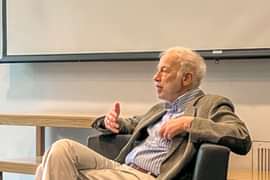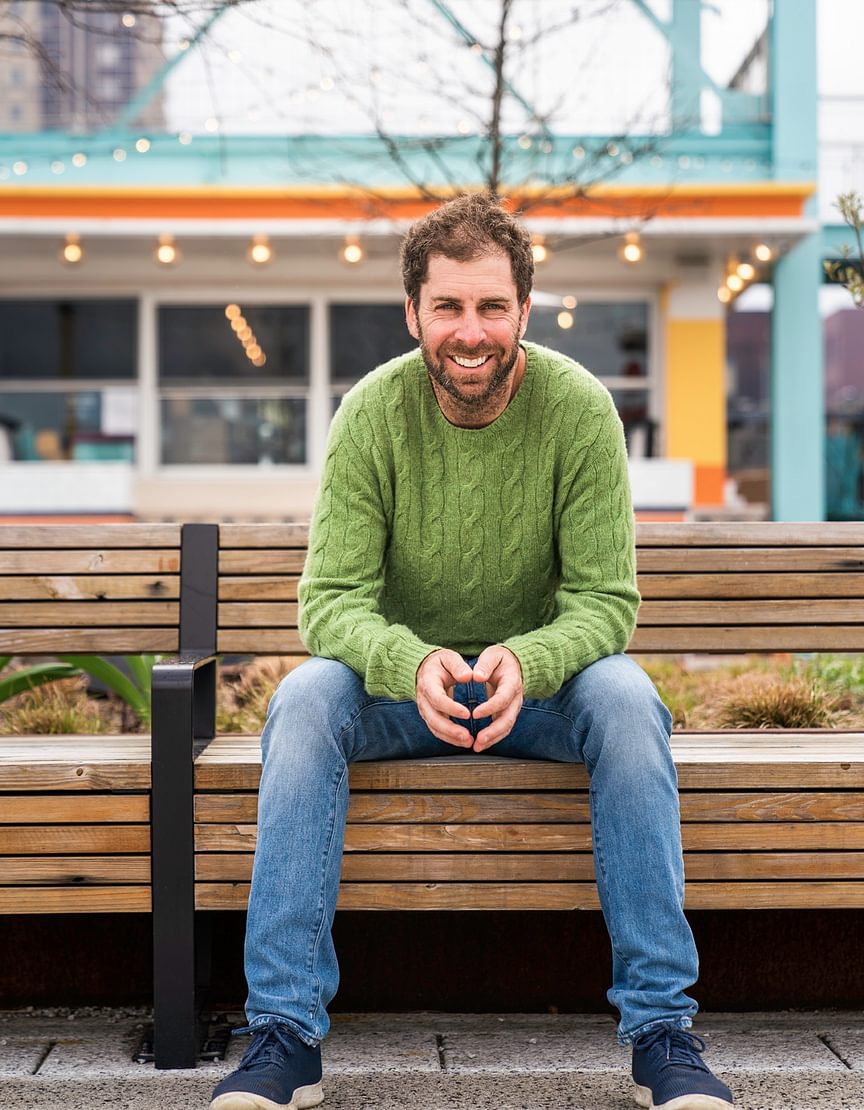
August 14, 2019
Trailblazers
Jed Walentas ’92 is reinventing Brooklynby Rita Savard
Cities have always been places where imagination thrives. For 10-year-old Jed Walentas, New York was a nexus for people, ideas, and possibilities to come together and create the future. Little did he know, while wondering and wandering in 1980s Manhattan, that someday he would play a crucial role in reimagining New York neighborhoods for the next generation—including the city’s most buzzworthy borough.
CEO of Two Trees, a family-owned real estate development firm, Walentas is synonymous with the Brooklyn boom. Over the past two decades, he’s spearheaded the transformation of the area known as DUMBO (District Under the Manhattan Bridge Overpass) from a shuttered manufacturing wasteland into a vibrant, creative community.
The goal is always to create something that is meaningful to people and that has a positive impact on lives for the long haul.
”Tucked under the Brooklyn and Manhattan suspension bridges, DUMBO is an architectural model linking the past to the present that attracts both tenants and tourists—think cobblestone streets and prewar factories housing galleries, artisanal shops, specialty boutiques, tech start-ups, and notable brands, including Etsy and West Elm.
“We’re in a business that has been extremely lucrative and I’m fortunate for that,” says Walentas, whose go-to uniform is sneakers, jeans, and a crew neck sweater. “But I also love what I do. Two Trees is headquartered in Brooklyn. I live in Manhattan. So naturally, you entwine yourself with the community and it helps you make better decisions. The goal is always to create something that is meaningful to people and that has a positive impact on lives for the long haul.”
But building a successful development is never easy. Blending housing, business, retail, arts, entertainment, and recreation in the right proportions borders on alchemy. And through the web of zoning issues, public hearings, permits, and seemingly endless amounts of red tape—Walentas has managed to perfect the recipe. “Luck and timing,” he humbly adds, are also important elements.
Before joining the family business, he got a crash course in how to manage a staff by working as a newspaper editor. His introduction to journalism was at The Phillipian. Walentas says he was struck by two things at Andover: “the athletic opportunities and the amazing teachers.”
“I was a tennis player and a mediocre football player who went from playing on soccer fields covered in broken glass (in New York) to these pristine grounds that were always perfectly maintained. But the big standout was the incredible faculty and their unrelenting dedication to us. The choice they make to work and live on campus so they can be immersed in our lives every step of the way was an incredible gift to all of us—it’s a very unique thing.”
Walentas then attended the University of Pennsylvania, where he spent a year-and-a-half burning the midnight oil as sports editor of the school paper, The Daily Pennsylvanian. He managed a 30-person staff, content, and press deadlines. “It was a great experience, shaping a lot of my management skills, work ethic, and problem solving,” he says. “But the lifestyle also burnt me out. I’d leave the paper at 4 a.m., go to 7-Eleven and buy an extra-large Coca-Cola and watch Sports Center for two hours before my 9 a.m. class.”
After graduation, Walentas turned down a job at the New York Post, choosing instead a one-year business internship with Donald Trump, for whom he immediately dove into a conversion project at 40 Wall Street. The move to real estate came naturally for Walentas, who grew up visiting construction sites with his developer dad, David Walentas. In 1997 he began working for Two Trees, which was carefully curating DUMBO.
We created a place where young and entrepreneurial companies wanted to be. And mainly, they wanted to be here because the people they wanted to hire would be here.
”The commercial piece of it, Walentas says, “was a happy accident.” The raw factory spaces and short commute to Manhattan were appealing to start-ups. Adding affordable rents, short-term leases, and dog-friendly buildings attracted Millennials in droves.
“We created a place where young and entrepreneurial companies wanted to be. And mainly, they wanted to be here because the people they wanted to hire would be here.” Walentas’s mark on Brooklyn and New York’s other boroughs is far from over. In summer 2018, he opened a six-acre public park along the East River in Brooklyn’s Williamsburg section. Built on the site of the former Domino Sugar Refinery, it didn’t take long for Domino Park’s Instagram-friendly views, playgrounds, gourmet taco stand, volleyball, and bocce courts to make it the city’s newest tourist destination.
Domino Park is Walentas’s favorite project to date—and appears to be the neighborhood’s magic ingredient that will continue to give something back to the community long after he’s gone.
“As a developer, often when you finish building something you might never set foot inside the space again. But the park is a place where I can experience the impact of the project in a unique way—kids doing fun things, people walking dogs, drinking margaritas, and eating ice cream cones. The community was starved for open space. To see how they’re using it is a proud and awesome thing for me.”




